Holistic SEO
How Do You Do Technical Seo

Welcome to our guide on mastering technical SEO! In this article, we’ll delve into the world of website optimization and show you methods to improve your online presence.
We’ll conduct thorough audits, optimize website speed, implement structured data markup, ensure mobile-friendliness, fix crawl errors, optimize URL structure, and monitor website performance.
Get ready to take your SEO game to the next level and unlock the full potential of your website! Let’s get started.
Key Takeaways
- Technical SEO involves analyzing and optimizing the technical aspects of a website.
- Website audits help identify issues impacting user experience and search engine rankings.
- Improving site performance and website speed optimization are crucial for a positive user experience.
- Implementing structured data markup improves search engine visibility and enhances user experience.
Understanding Technical SEO
To understand technical SEO, we analyze and optimize the technical aspects of a website to improve its visibility and performance on search engines. Common technical issues can hinder a website’s ability to rank well in search results. These issues include slow page load times, broken links, duplicate content, and improper use of meta tags.

SEO troubleshooting involves identifying and fixing these issues to ensure that the website is properly indexed by search engines. Slow page load times can be improved by optimizing image sizes and reducing server response time. Broken links can be fixed by updating or redirecting them to relevant pages. Duplicate content can be resolved by implementing canonical tags or using 301 redirects. Proper use of meta tags, such as title and description tags, can enhance the website’s visibility and click-through rates on search engine result pages.
Conducting Website Audits
When conducting website audits, there are two key components to consider.
The first is assessing the technical aspects of the site, such as site speed, mobile-friendliness, and crawlability.
The second component is improving site performance by identifying and addressing any issues that may be impacting the user experience and search engine rankings.

Key Audit Components
During our technical SEO process, we conduct website audits to identify key audit components. These components help us assess the overall health and effectiveness of a website’s performance. Here are the four key audit components that we focus on:
- Website Architecture: We evaluate the structure and organization of the website, ensuring that it’s user-friendly, easy to navigate, and accessible to search engine crawlers.
- Content Optimization: We analyze the website’s content to ensure it’s relevant, engaging, and optimized for search engines. This includes keyword research, meta tag optimization, and improving overall content quality.
- Technical SEO: We examine technical aspects such as website speed, mobile-friendliness, and URL structure to ensure optimal performance and visibility in search engine results.
- Indexing and Crawlability: We assess how well search engines can crawl and index the website’s pages, identifying any issues that may hinder visibility or indexing.
Improving Site Performance
We continue our evaluation of website performance by focusing on improving site performance through conducting website audits. One crucial aspect of website audits is analyzing user experience and reducing page load time. By improving user experience, we ensure that visitors have a positive interaction with our website, leading to increased engagement and conversions. Reducing page load time is equally important, as slow-loading pages can frustrate users and cause them to abandon our site. To achieve these goals, we can conduct a comprehensive website audit that includes evaluating website design, optimizing images and videos, and minimizing the use of unnecessary plugins. This audit will help us identify areas for improvement and implement strategies to enhance user experience and reduce page load time, ultimately optimizing our website speed.
| Key Actions | Benefits |
|---|---|
| Evaluate website design | Enhance user experience |
| Optimize images and videos | Reduce page load time |
| Minimize unnecessary plugins | Improve website speed |
In the subsequent section, we will delve into the importance of optimizing website speed and explore effective strategies for achieving faster loading times.
Optimizing Website Speed
To optimize website speed, we focus on improving the load time of our pages. Achieving a fast loading website is crucial for user experience and search engine optimization.

Here are four key steps we take to optimize our website speed:
- Minimize HTTP requests: By reducing the number of requests made to the server, we can significantly improve page load speed. This involves optimizing images, combining CSS and JavaScript files, and utilizing browser caching.
- Optimize code: We ensure that our HTML, CSS, and JavaScript code is clean and efficient. This includes minimizing unnecessary code, using CSS and JavaScript compression techniques, and optimizing the order of code execution.
- Implement content delivery networks (CDNs): CDNs help distribute website content across multiple servers, reducing the distance between the user and the server. This speeds up the delivery of web pages, especially for users located far from the server.
- Regularly monitor and optimize: We continually monitor our website’s performance using tools like Google PageSpeed Insights and GTmetrix. This allows us to identify and fix any speed-related issues promptly.
With a well-optimized website speed, we can now move on to implementing structured data markup to further enhance our technical SEO strategy.
Implementing Structured Data Markup
When it comes to technical SEO, implementing structured data markup is crucial.
Structured data provides numerous benefits, such as improving search engine visibility, enhancing user experience, and enabling rich snippets in search results.

To ensure successful implementation, it’s important to follow best practices. These include using schema.org vocabulary, accurately labeling data elements, and testing the markup with tools like Google’s Structured Data Testing Tool.
Benefits of Structured Data
Implementing structured data markup provides numerous benefits for improving technical SEO. By using structured data, you can enhance the way search engines understand and display your website’s content.
Here are four key advantages of implementing structured data markup:
- Increasing visibility: Structured data helps search engines recognize and display your website’s information more prominently in search results, making it more visible to users.
- Driving organic traffic: By providing search engines with more context about your content, structured data can attract targeted organic traffic to your website.
- Enhancing click-through rates: When search engines display rich snippets, such as star ratings or product prices, users are more likely to click on your website, increasing your click-through rates.
- Improving user experience: Structured data markup allows search engines to provide more accurate and relevant information to users, improving their overall experience on your website.
Best Practices for Implementation
For successful implementation of structured data markup, we highly recommend following these best practices. These practices are designed to ensure that your structured data is correctly implemented and optimized for search engines.
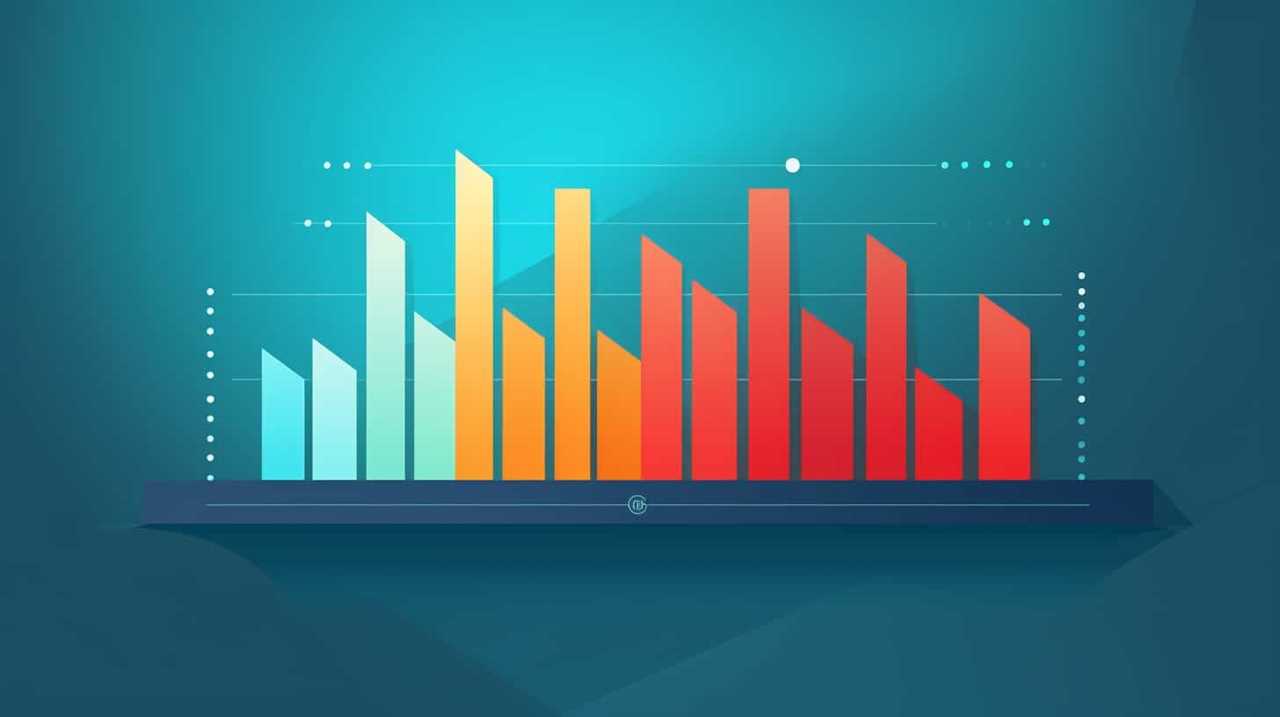
One common mistake isn’t properly testing the structured data markup before implementation. This can lead to errors or incorrect data being displayed in search results.
Another mistake is using outdated or unsupported markup formats. It’s important to stay up-to-date with the latest standards and guidelines for structured data.
Additionally, it’s crucial to regularly monitor and validate your structured data to ensure its accuracy and effectiveness.
By following these best practices, you can maximize the benefits of structured data and improve your website’s visibility in search results.

In the next section, we’ll discuss the importance of ensuring mobile-friendliness.
Ensuring Mobile-Friendliness
To ensure mobile-friendliness, we prioritize optimizing our website’s design and functionality for seamless user experience on various devices. This involves implementing responsive design, which allows our site to adapt to different screen sizes and orientations.
Here are four key steps we take to ensure mobile usability:
- Conduct a mobile usability audit: We assess how well our website performs on mobile devices, identifying any issues that may affect user experience.
- Optimize page load speed: Mobile users expect fast-loading pages, so we optimize our website’s performance by minimizing file sizes, leveraging browser caching, and utilizing content delivery networks.
- Streamline navigation and user interface: We simplify our website’s navigation and user interface for mobile users, ensuring intuitive and easy browsing.
- Test across devices: We thoroughly test our website on a range of mobile devices and operating systems to ensure consistent functionality and compatibility.
Fixing Crawl Errors
We fix crawl errors by identifying and resolving issues that may hinder search engine bots from properly indexing our website. When it comes to troubleshooting indexing problems, it is crucial to address crawl errors promptly. These errors can prevent search engines from accessing and understanding our website’s content, leading to lower rankings and visibility in search results. To help you understand the importance of fixing crawl errors, here’s a table showcasing common types of crawl errors and their impact on SEO:

| Crawl Error | Description | Impact on SEO |
|---|---|---|
| 404 Not Found | Page not found on the server | Poor user experience |
| Redirect Error | Failed redirects or incorrect configuration | Loss of link equity |
| Server Error (5xx) | Server-side errors preventing page access | Reduced crawlability |
Optimizing URL Structure
Now, let’s delve into optimizing our URL structure to further enhance our technical SEO efforts.
To ensure SEO friendly URLs, consider implementing the following URL optimization techniques:
- Keep URLs concise and descriptive: Use relevant keywords in the URL to provide users and search engines with a clear understanding of the page’s content.
- Use hyphens to separate words: Hyphens are preferred over underscores or spaces as they improve readability and help search engines interpret the URL more accurately.
- Avoid dynamic parameters: If possible, eliminate unnecessary parameters in the URL as they can negatively impact SEO and make the URL less user-friendly.
- Implement canonical tags: Canonical tags help prevent duplicate content issues by specifying the preferred version of a URL.
Optimizing your URL structure not only improves search engine visibility but also enhances user experience.
Now, let’s move on to the next section and learn how to monitor and analyze website performance.

Monitoring and Analyzing Website Performance
One can effectively monitor and analyze website performance to ensure optimal technical SEO implementation.
Monitoring website performance allows us to gather valuable data on website traffic and user engagement. By tracking website traffic, we can identify trends and patterns, such as peak times and popular pages, which can help us optimize our content and improve user experience.
Additionally, analyzing user engagement metrics, such as bounce rate and time on page, can provide insights into how visitors interact with our website and identify areas for improvement.
Frequently Asked Questions
What Are the Best Tools to Use for Conducting Website Audits?
Website audit tools are essential for conducting thorough website audits. They help identify technical SEO issues and provide valuable insights for optimization. Understanding their importance is crucial for mastering technical SEO.
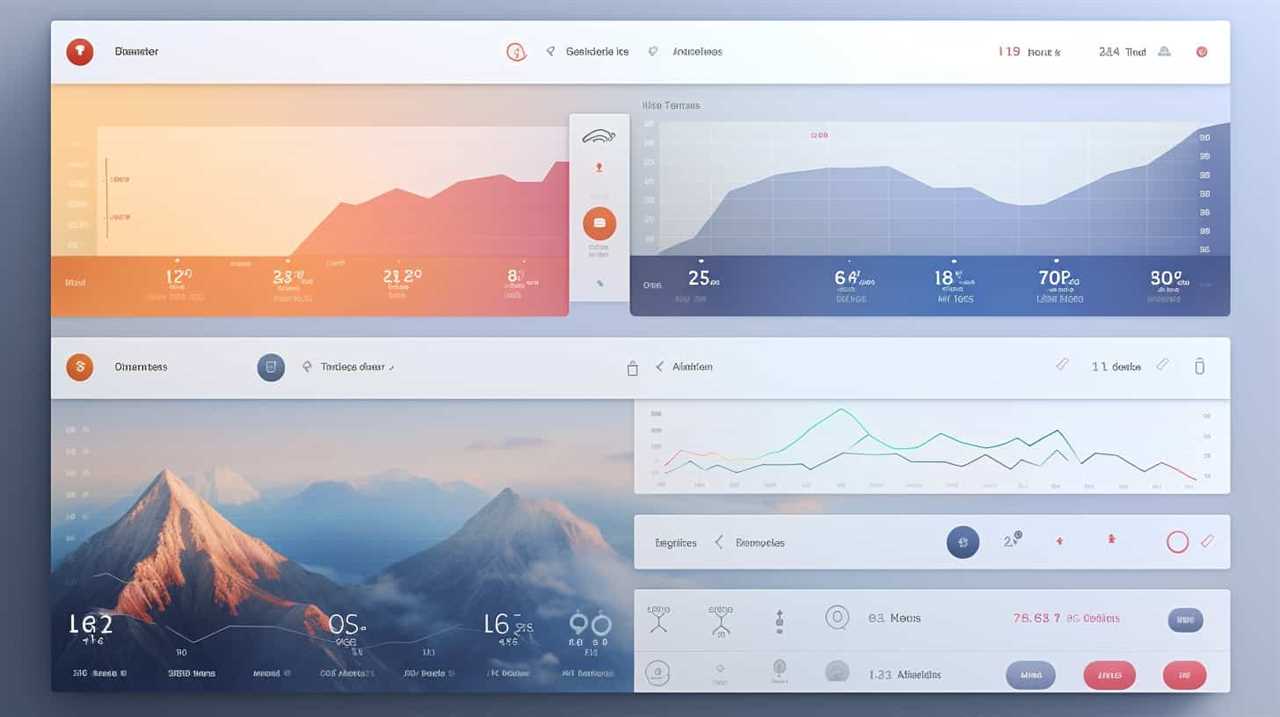
How Can I Optimize My Website’s Loading Speed for Mobile Devices?
To optimize our website’s loading speed for mobile devices, we focus on improving mobile performance and reducing page load time. This involves optimizing images, minifying CSS and JavaScript files, and leveraging browser caching.
Is It Necessary to Implement Structured Data Markup for All Types of Websites?
Implementing structured data markup is necessary for improving search engine visibility and worth the effort. It helps search engines understand and display website content accurately, leading to higher rankings and more organic traffic.
How Can I Fix Crawl Errors That Are Affecting My Website’s Performance?
To fix crawl errors and improve website performance, we analyze the errors, identify the root causes, and implement the necessary fixes. This helps ensure search engines can crawl and index our site effectively.
Are There Any SEO Best Practices for Optimizing URL Structure?
SEO best practices for optimizing URL structure include creating SEO friendly URLs and conducting keyword research to optimize URLs. This is important for improving website performance and ensuring that search engines can easily understand and rank your content.

Conclusion
In conclusion, technical SEO is a crucial aspect of improving website performance and visibility.
By conducting regular audits, optimizing website speed, implementing structured data markup, ensuring mobile-friendliness, fixing crawl errors, and optimizing URL structure, businesses can enhance their online presence.
Monitoring and analyzing website performance allows for continuous improvement and better user experience.
With these techniques, businesses can boost their rankings and attract more organic traffic, leading to increased success and satisfaction.

Holistic SEO
Guide to Holistic SEO for Optimal Website Performance

Welcome to our detailed guide on Complete SEO for maximizing website performance.
Are you ready to master the art of driving organic traffic and improving your online presence?
In this article, we will delve into the importance of holistic SEO and provide you with practical on-page optimization techniques, off-page optimization strategies, and technical SEO best practices.
We will also explore how to measure and analyze your website’s performance to ensure continuous growth.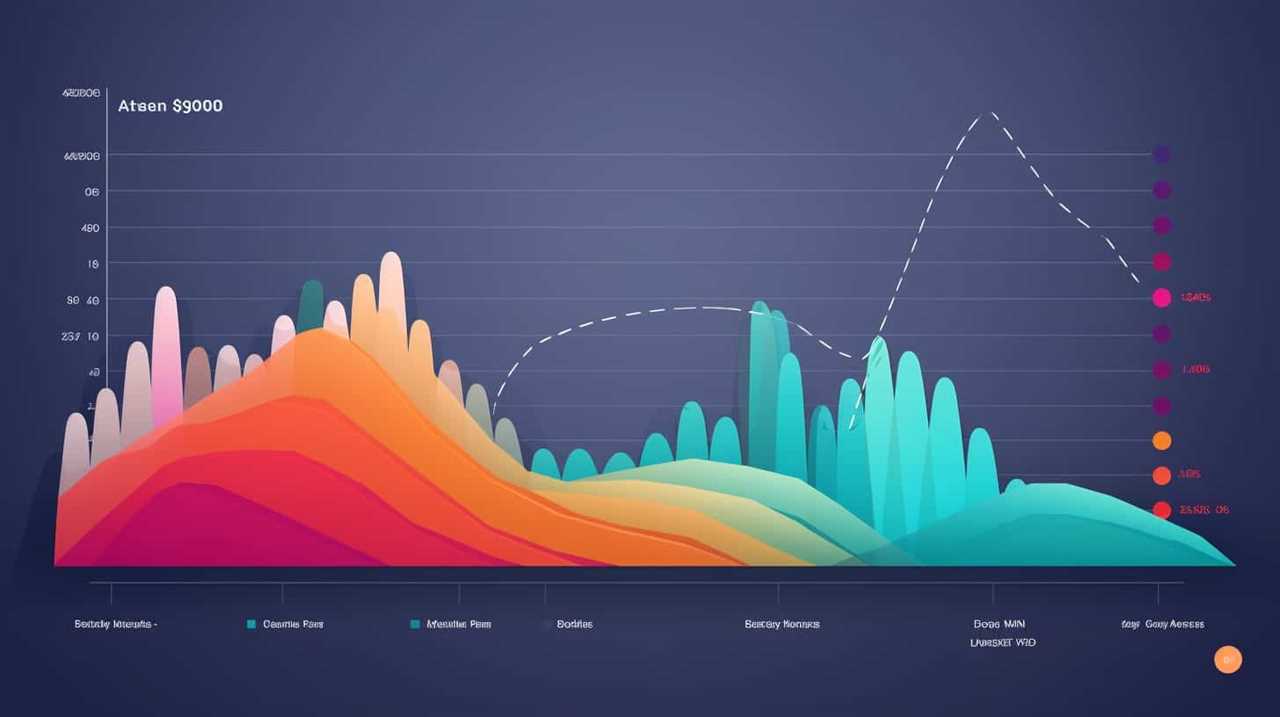
Get ready to take your website to the next level!
Key Takeaways
- User experience is crucial for website performance, leading to longer stay and higher conversion rates.
- Integrating social media enhances holistic SEO strategy, increasing audience engagement, brand awareness, and traffic.
- On-page optimization techniques, such as keyword research and content optimization, improve website visibility and ranking on search engine result pages (SERPs).
- Off-page optimization strategies, including guest blogging and backlink building, enhance website visibility and organic traffic.
Importance of Holistic SEO
In our experience, holistic SEO is vital for achieving optimal website performance. The role of user experience in holistic SEO can’t be overstated. When users have a positive experience on your website, they’re more likely to stay longer, explore further, and ultimately convert into customers. This is why it’s important to focus on elements such as page load speed, mobile responsiveness, and intuitive navigation.
Additionally, integrating social media into your holistic SEO strategy can have numerous benefits. Social media platforms provide an opportunity to engage with your audience, build brand awareness, and drive traffic to your website. By sharing valuable content and encouraging social sharing, you can increase your online visibility and attract more organic traffic.
As we transition into the subsequent section about on-page optimization techniques, it’s important to remember that a holistic SEO approach considers all aspects of your website to ensure maximum performance.
On-Page Optimization Techniques
To optimize your website’s performance, we’ll now delve into the subtopic of on-page optimization techniques. On-page optimization plays a crucial role in improving your website’s visibility and ranking on search engine result pages (SERPs).
Two key components of on-page optimization are keyword research and content optimization.
Keyword research involves identifying the most relevant and high-performing keywords that align with your website’s content and target audience. By conducting comprehensive keyword research, you can optimize your website’s content to increase its chances of ranking higher in search engine results.
Content optimization focuses on optimizing the various elements on your web pages, such as headings, meta tags, URLs, and image alt text, to make them more search engine friendly. This includes incorporating target keywords strategically throughout your content and ensuring it’s relevant, engaging, and well-structured.
Off-Page Optimization Strategies
We will now explore the effectiveness of incorporating off-page optimization strategies into our holistic SEO approach. Off-page optimization refers to the techniques used outside of our website to improve search engine rankings.
Two key strategies for off-page optimization are guest blogging and backlink building.
Guest blogging involves writing and publishing content on other websites within our industry. This allows us to showcase our expertise, reach a wider audience, and build valuable backlinks to our website.
Backlink building is the process of acquiring links from other websites that point back to our own. These links act as votes of confidence and authority, signaling to search engines that our website is trustworthy and relevant.
By implementing these off-page optimization strategies, we can enhance our website’s visibility, increase organic traffic, and improve search engine rankings.
It’s essential to have a well-rounded SEO approach that includes both on-page and off-page optimization techniques to achieve optimal website performance.
Technical SEO Best Practices
Continuing our exploration of effective off-page optimization strategies, let’s now delve into the realm of technical SEO best practices.
When it comes to optimizing your website for search engines, conducting an SEO audit is crucial. An SEO audit checklist can help ensure that all technical aspects of your website are in order. It involves assessing factors such as website speed, mobile-friendliness, URL structure, and metadata optimization.

Another important aspect of technical SEO is keyword research. By utilizing keyword research techniques, you can identify the most relevant and high-performing keywords to target on your website. This will help improve your website’s visibility and drive organic traffic.
Technical SEO plays a vital role in optimizing your website’s performance and ensuring that it’s easily discoverable by search engines.
Measuring and Analyzing Website Performance
As we delve into the realm of measuring and analyzing website performance, let’s explore the importance of utilizing data-driven insights to optimize our website for optimal results.
Website analytics play a crucial role in understanding how our website is performing and identifying areas for improvement. By analyzing metrics such as traffic sources, page views, bounce rate, and conversion rate, we can gain valuable insights into user behavior and preferences.
These insights allow us to make informed decisions about our website’s design, content, and marketing strategies. Monitoring conversion rate is especially important as it directly impacts our website’s effectiveness in achieving its goals, whether it’s generating leads, making sales, or increasing engagement.
Frequently Asked Questions
How Long Does It Take to See Results From Holistic SEO Efforts?
On average, it takes time to see results from holistic SEO efforts. Success is measured by tracking website performance over time. This guide provides insights on optimizing SEO for optimal website performance.
Can I Implement Holistic SEO Strategies on My Own, or Do I Need to Hire an SEO Agency?
Implementing holistic SEO strategies on your own or hiring an agency? Weigh the pros and cons. DIY can save money but requires time and expertise. Hiring an agency provides expertise but can be costly. Measure success through improved website performance.
What Are Some Common Mistakes to Avoid When Implementing Holistic Seo?
When implementing holistic SEO, it’s important to avoid common mistakes to ensure optimal website performance. By understanding the benefits of holistic SEO in e-commerce websites, we can achieve mastery in our SEO strategies.
Are There Any Specific Industries or Types of Websites That Can Benefit the Most From Holistic Seo?
In our experience, specific industries or types of websites that can benefit the most from holistic SEO include e-commerce, healthcare, and local businesses. Key factors to consider for successful implementation are keyword research, content optimization, and technical SEO.
How Does Holistic SEO Differ From Traditional SEO Practices?
Holistic SEO differs from traditional SEO practices in its focus on long-term success and a comprehensive approach. It emphasizes the benefits of optimizing all aspects of a website, including content, user experience, and technical elements, for optimal performance and search engine visibility.
What Are the Key Strategies to Achieve Full-Scale Website Optimization with Holistic SEO?
Implementing holistic seo website optimization requires a combination of key strategies. Firstly, conducting comprehensive keyword research to understand user intent is crucial. Next, optimizing on-page elements such as meta tags, headers, and content structure ensure search engines understand your website fully. Additionally, creating unique and valuable content, optimizing site speed, and prioritizing mobile responsiveness contribute to a holistic SEO approach. Building quality backlinks and monitoring analytics regularly further refine optimization efforts.
Conclusion
In conclusion, implementing holistic SEO is essential for achieving optimal website performance. By focusing on both on-page and off-page optimization techniques, as well as technical SEO best practices, you can boost your website’s visibility and organic traffic.
It’s like tending to a well-maintained garden, where each aspect contributes to the overall beauty and health of the plants. By measuring and analyzing website performance, you can continuously improve and refine your SEO strategy, ensuring long-term success.

Holistic SEO
Mastering Holistic SEO for Full-Scale Website Optimization

Are you prepared to master comprehensive SEO in order to improve your entire website? We are here to help you.
In this article, we’ll guide you through the fundamentals of holistic SEO, from keyword research and analysis to on-page and off-page optimization techniques.
We’ll also show you how to measure and analyze SEO performance to ensure maximum results.
Get ready to take your website to the next level and achieve true mastery in the world of SEO.
Let’s dive in.
Key Takeaways
- Content marketing strategies attract and engage the target audience.
- Thorough keyword research uncovers valuable keywords.
- User experience optimization enhances engagement and conversions.
- Mastering keyword research maximizes online visibility.
The Fundamentals of Holistic SEO
When implementing holistic SEO strategies, we prioritize understanding the fundamentals of optimizing a website for full-scale performance. One of the key aspects of holistic SEO is content marketing strategies. By creating valuable and relevant content, we can attract and engage our target audience while also improving our website’s visibility in search engine results. This involves conducting thorough keyword research, crafting compelling headlines, and optimizing our content with relevant keywords and meta tags.
Another fundamental aspect of holistic SEO is user experience optimization. It’s crucial to ensure that our website provides a seamless and enjoyable experience for users. This includes optimizing website speed, improving navigation and site structure, and making our content easily accessible and readable. By prioritizing user experience, we can enhance engagement, increase conversions, and improve overall website performance.
Keyword Research and Analysis
To continue our discussion on holistic SEO, let’s delve into the importance of keyword research and analysis for optimizing a website’s performance.
Keyword research is a critical step in understanding the search behavior of your target audience and identifying the most relevant and valuable keywords to target.
Here are four key reasons why keyword research and analysis are crucial for website optimization:
- Identify high-value keywords: By conducting competitive analysis and researching industry trends, you can uncover valuable keywords that have high search volume and low competition.
- Discover long tail keywords: Long tail keywords are more specific and less competitive, allowing you to target niche audiences and drive targeted traffic to your website.
- Optimize content: Keyword research helps you optimize your website content by strategically incorporating relevant keywords into your titles, headings, meta tags, and body content.
- Stay ahead of the competition: By continuously analyzing keywords and monitoring your competitors’ keyword strategies, you can stay ahead in the search rankings and attract more organic traffic.
Mastering keyword research and analysis is essential for achieving full-scale website optimization and maximizing your online visibility.
On-Page Optimization Techniques
Now let’s explore On-Page Optimization Techniques, which play a crucial role in enhancing a website’s performance and visibility.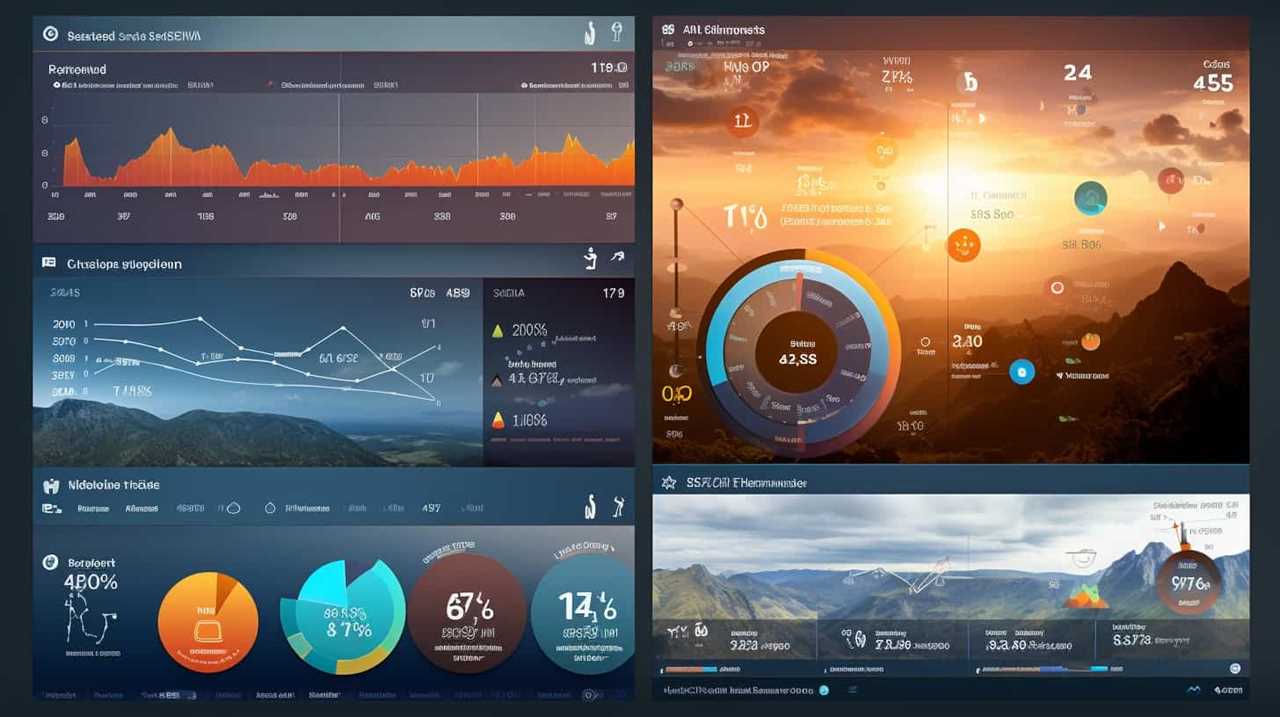
On-page optimization focuses on optimizing individual web pages to improve their search engine rankings and attract more organic traffic. One key aspect of on-page optimization is content optimization, which involves creating high-quality, relevant, and keyword-rich content that resonates with your target audience.
This includes using appropriate headings, subheadings, and incorporating relevant keywords naturally throughout the content. Another important on-page optimization technique is optimizing meta tags, such as title tags and meta descriptions.
These tags provide a concise summary of the page’s content and help search engines understand what the page is about. By optimizing these elements, you can increase the chances of your website ranking higher in search engine results.
In the next section, we’ll delve into off-page optimization strategies to further enhance your website’s visibility and authority.
Off-Page Optimization Strategies
Continuing from the previous subtopic, we can explore off-page optimization strategies to further enhance our website’s visibility and authority. Off-page optimization focuses on improving our website’s reputation and credibility through external factors. Here are four key strategies to consider:
- Link Building: Building high-quality backlinks from reputable websites can significantly improve our website’s search engine rankings. It’s important to focus on acquiring natural and relevant links that demonstrate our authority and expertise in our industry.
- Social Media Presence: Having an active and engaging presence on social media platforms can help increase brand awareness, drive traffic to our website, and improve search engine visibility. It’s crucial to create valuable content and engage with our audience to build a strong online community.
- Guest Blogging: Collaborating with influential bloggers or industry experts to publish guest posts on their websites can help us reach a wider audience and gain valuable backlinks. It’s essential to choose relevant and reputable websites that align with our niche.
- Online Reputation Management: Monitoring and managing our online reputation is crucial for building trust and credibility. Responding to customer reviews, addressing negative feedback, and actively managing our brand image can positively impact our website’s visibility and authority.
By implementing these off-page optimization strategies, we can enhance our website’s visibility, credibility, and ultimately improve our overall SEO performance.
In the next section, we’ll explore the importance of measuring and analyzing SEO performance to ensure continuous improvement.
Measuring and Analyzing SEO Performance
Measuring and analyzing SEO performance is essential for evaluating the effectiveness of our optimization efforts and identifying areas for improvement. Without proper tracking and analysis of SEO data, we would be blindly implementing strategies without knowing whether they are yielding the desired results. By monitoring key metrics such as organic traffic, keyword rankings, and conversion rates, we can gain valuable insights into the performance of our website and make informed decisions to drive better results.
In addition to tracking our own SEO performance, competitor analysis is also crucial for staying ahead in the game. By analyzing the SEO strategies of our competitors, we can identify opportunities and uncover areas where we can outperform them. This involves evaluating their keyword rankings, backlink profiles, and content strategies to gain a competitive edge.
To help visualize the importance of measuring and analyzing SEO performance, here is a table showcasing some key metrics and their significance:
| Metric | Significance |
|---|---|
| Organic Traffic | Indicates the amount of traffic generated through search engines, reflecting the reach of our website. |
| Keyword Rankings | Shows how well our website ranks for targeted keywords, indicating visibility and competitiveness. |
| Conversion Rates | Measures the percentage of visitors who take desired actions, providing insights into website effectiveness. |
Frequently Asked Questions
What Is the Impact of Holistic SEO on Website Loading Speed?
The impact of holistic SEO on website loading speed is significant. By optimizing various elements such as code, images, and server response time, holistic SEO improves website performance, resulting in faster loading times and better rankings.
How Can I Optimize My Website for Voice Search Using Holistic SEO Techniques?
To optimize our website for voice search, we employ holistic SEO techniques. By focusing on keyword research, mobile optimization, and natural language content, we ensure our site is primed for voice search queries.
Are There Any Specific SEO Techniques for Optimizing Mobile Websites?
Yes, there are specific SEO techniques for optimizing mobile websites. A mobile first approach and responsive design are crucial. By prioritizing mobile users and ensuring a seamless experience, you can improve search rankings and overall website performance.
Can You Provide Examples of Successful Holistic SEO Strategies Implemented by Major Brands?
Successful holistic SEO strategies implemented by major brands showcase the importance of website loading speed. These brands prioritize optimization techniques such as mobile responsiveness, quality content creation, backlink building, and user experience enhancement.
How Does Holistic SEO Contribute to Improving User Experience on a Website?
Improving website usability and enhancing content relevance are key aspects of holistic SEO. By optimizing user experience, we ensure that visitors find what they need quickly and easily, increasing engagement and conversions.
What is the Difference Between Comprehensive SEO and Holistic SEO?
When it comes to digital marketing strategies, understanding the difference between comprehensive SEO and holistic SEO is crucial. While comprehensive SEO focuses on optimizing specific elements of a website to improve its search engine rankings, holistic SEO takes a broader approach and encompasses all aspects of an online presence, including content marketing. By integrating comprehensive seo in content marketing efforts, businesses can ensure their strategies align with search engine algorithms and reach a wider audience.
Conclusion
In conclusion, mastering holistic SEO is the ultimate key to unlocking full-scale website optimization. By seamlessly integrating keyword research, on-page optimization techniques, and off-page optimization strategies, we can achieve remarkable results in our SEO performance.
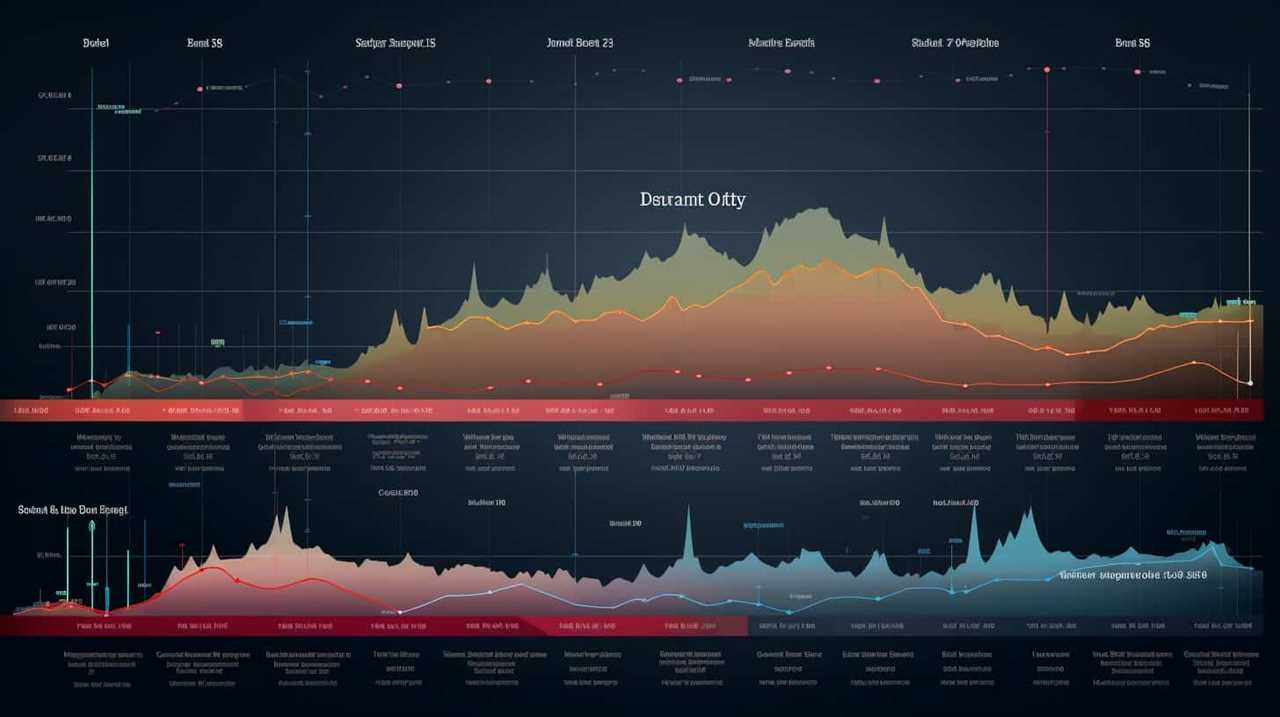
With a keen eye for analyzing and measuring our efforts, we can strategically optimize our website to attract maximum organic traffic and dominate the digital landscape.
Don’t settle for mediocre SEO, go all-in with holistic optimization and watch your website soar to new heights.
Holistic SEO
Impact of Social Media on Holistic SEO Practices

In the digital world, social media plays a crucial role in comprehensive SEO strategies. It helps enhance visibility, build brand awareness, and boost user engagement.
With its power to amplify content and strengthen online reputation, social media acts as a beacon, guiding our website towards higher search engine rankings and organic reach.
As we embark on this journey, let us delve into the symbiotic relationship between social media and holistic SEO, unveiling the impact it holds for our mastery in the digital realm.
Key Takeaways
- Social media platforms can be effectively utilized to increase visibility and brand awareness.
- Collaborating with influencers can boost brand visibility and reach a wider audience.
- Analyzing social media analytics helps to understand user behavior and optimize website traffic.
- Leveraging social media strategies can enhance SEO practices and improve search engine rankings.
Increased Visibility and Brand Awareness
To increase visibility and brand awareness, it’s essential that we utilize social media platforms effectively.
Social media advertising and influencer marketing play a crucial role in achieving these goals. By running targeted ad campaigns on platforms like Facebook, Instagram, and Twitter, we can reach a wider audience and increase our brand’s exposure. These platforms offer advanced targeting options, allowing us to reach specific demographics based on factors like age, location, and interests.
Additionally, collaborating with influencers who’ve a large and engaged following can significantly boost our brand’s visibility. Influencer marketing allows us to tap into the trust and influence that these individuals have built with their audience. By aligning our brand with influencers that resonate with our target market, we can increase awareness and credibility, leading to a higher likelihood of conversions and customer loyalty.
Improved Website Traffic and User Engagement
As we continue exploring the impact of social media on holistic SEO practices, it’s important to note how it contributes to improved website traffic and user engagement.
Social media analytics play a crucial role in understanding user behavior and preferences, allowing us to optimize our website to drive more targeted traffic. By analyzing data from social media platforms, we can identify the type of content that resonates with our target audience and tailor our SEO strategies accordingly.
Furthermore, influencer partnerships can significantly boost website traffic and user engagement. Collaborating with influencers who have a large following and influence in our industry can help us reach a wider audience and increase brand visibility. These partnerships can lead to higher engagement rates, increased website visits, and ultimately, improved search engine rankings.
With these tactics in place, we can ensure that our website receives higher traffic and engages users effectively. This sets the stage for the subsequent section on enhanced content distribution and amplification.
Enhanced Content Distribution and Amplification
We optimize our content distribution and amplify our reach through social media channels. By strategically targeting our outreach efforts and forming influencer partnerships, we ensure that our content reaches the right audience and receives maximum exposure. Through targeted outreach, we identify and engage with individuals and communities who are most likely to be interested in our content. This helps us connect with our target audience on a deeper level, fostering stronger relationships and driving higher engagement. Additionally, by partnering with influencers who have a strong following and influence in our niche, we are able to leverage their reach and credibility to amplify the distribution of our content. This results in increased visibility, brand awareness, and ultimately, higher conversions.
| Targeted Outreach | Influencer Partnerships |
|---|---|
| Identify relevant individuals and communities | Collaborate with influencers in our niche |
| Engage with target audience on a deeper level | Leverage their reach and credibility |
| Foster stronger relationships | Amplify distribution of content |
| Drive higher engagement | Increase visibility and brand awareness |
Strengthened Online Reputation and Credibility
Our strong online reputation and credibility are key assets in building trust with our audience. In today’s digital age, where information is readily available and opinions can spread quickly, it’s essential to manage our online credibility effectively. Reputation management plays a vital role in establishing and maintaining a positive image for our brand.
Here are four reasons why a strengthened online reputation is crucial:
- Increased trust: When our audience sees positive reviews, testimonials, and recommendations from others, it enhances their trust in our brand and establishes us as a credible source.
- Improved brand perception: A strong online reputation helps shape how our audience perceives our brand. Positive feedback and interactions can contribute to a positive brand image.
- Enhanced customer loyalty: When customers trust our brand, they’re more likely to stay loyal and recommend our products or services to others.
- Competitive advantage: In a crowded online marketplace, a strong online reputation sets us apart from our competitors. It gives us an edge and attracts potential customers who value credibility and reliability.
Boosted Search Engine Rankings and Organic Reach
Through the integration of social media, we can achieve higher search engine rankings and expand our organic reach. Social media advertising and influencer partnerships play a crucial role in boosting our website’s visibility and driving organic traffic.
Social media advertising allows us to target specific demographics and promote our content to a wider audience. By leveraging the advanced targeting options provided by social media platforms, we can reach users who are more likely to engage with our website and increase our chances of ranking higher in search engine results.
In addition, influencer partnerships enable us to tap into the existing follower base of popular influencers. By collaborating with influencers who align with our brand values, we can leverage their influence to reach a larger audience and drive more organic traffic to our website. This increased visibility can lead to higher search engine rankings, as search engines often prioritize websites with higher organic traffic.
Frequently Asked Questions
How Can Social Media Impact the Overall Visibility and Brand Awareness of a Business?
Social media’s impact on brand perception and leveraging social media influencers for business growth are key factors in increasing overall visibility and brand awareness. These strategies are essential for holistic SEO practices.
What Strategies Can Be Implemented to Improve Website Traffic and User Engagement Through Social Media Platforms?
To improve website traffic and user engagement through social media platforms, we can implement strategies such as website optimization and social media advertising. These tactics can increase visibility and attract more visitors to our site.
How Does Social Media Contribute to Enhanced Content Distribution and Amplification?
Social media reach is crucial for content amplification. It helps in enhancing content distribution by reaching a wider audience, increasing visibility, and driving traffic to websites. Social media’s impact on content amplification cannot be underestimated.
What Are Some Effective Ways to Strengthen Online Reputation and Credibility Using Social Media?
To build trust and establish authority using social media, we focus on strategies like consistently sharing valuable content, engaging with our audience, and showcasing positive customer testimonials. These tactics enhance our online reputation and credibility.
Can Social Media Efforts Alone Boost Search Engine Rankings and Organic Reach, or Should They Be Combined With Other SEO Practices?
Social media efforts alone may not boost search engine rankings and organic reach. Combining them with other SEO practices is crucial. Integration between social media and SEO is necessary for effective results. Social media analytics and measurement play a significant role in achieving mastery.
What Are the Key Ways That Social Media Influences Holistic SEO?
Social media’s impact on holistic seo is substantial. Firstly, it enhances website visibility by allowing businesses to share content and engage with their audience. Secondly, social signals from platforms like Facebook and Twitter contribute to search engines’ ranking algorithms. Lastly, social media drives organic traffic, which increases the likelihood of gaining quality backlinks. Overall, integrating social media into SEO strategy is essential for online success.
Conclusion
In conclusion, the impact of social media on holistic SEO practices is undeniable.
By leveraging social media platforms, businesses can increase their visibility and brand awareness, drive more website traffic and user engagement, distribute and amplify their content, and strengthen their online reputation and credibility.
This ultimately leads to boosted search engine rankings and organic reach.
Social media is like a powerful engine, propelling businesses towards their SEO goals with speed and efficiency.
-

 Expert Content Authority3 months ago
Expert Content Authority3 months agoThe Pillar of SEO: Why Content Consistency Matters Most
-

 Learning Center3 months ago
Learning Center3 months agoUncover How To Use ChatGPT to Write Effective Ad Copy
-

 Learning Center3 months ago
Learning Center3 months agoAI in 2024: 10 Things We are NOT Looking Forward To
-

 Holistic SEO6 hours ago
Holistic SEO6 hours agoHolistic Local SEO Tactics for Small Businesses
-

 Learning Center3 months ago
Learning Center3 months agoOptimize Your Digital Experience with Akamai CDN
-
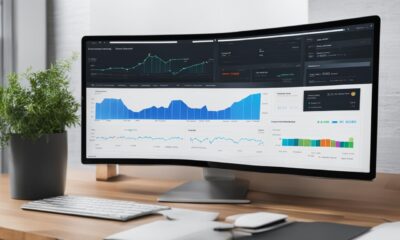
 Learning Center3 months ago
Learning Center3 months agoUnbiased RankerX Review: A Deep Dive into Its SEO Capabilities
-

 Holistic SEO3 months ago
Holistic SEO3 months agoMoney Robot Review [2024]
-

 Learning Center3 months ago
Learning Center3 months agoExperience How GPT-4 Turbo Beats Claude 2: A Review

















